Student loans outstanding in the United States now exceed 1.2 trillion dollars. Student loans are relied upon to obtain education which can positively impact your earning potential
First let’s talk about the bad news about student loans and bankruptcy. Most student loans are only discharged in bankruptcy under limited circumstances. It typically does not matter whether the student loans were made by the government or by a private lender. To get a student loan discharged your must prove that continuing to keep the debt in place “would impose an undue hardship on the debtor and the debtor’s dependents . . .”
The legal test used to prove undue hardship in Mississippi is called the “Brunner test.” The Brunner test looks at several things such as whether the debtor and their dependents are able to maintain a minimal standard of living if forced to pay the student loans. This test also looks to determine whether the debtor’s circumstances are unlikely to change for a significant portion of the repayment period of the loan, and that good faith efforts have been made to pay the debt. In its adoption of Brunner, the Fifth Circuit explained that proving the debtor is “currently in financial straits” is not enough. The Court added that in order to meet this test the difficult financial circumstances of the debtor either were not present at the time the loan was made, or if they were, they were exacerbated. The Fifth Circuit also added the requirement that the reasons causing the hardship were outside of the debtor’s control. What does this all mean? It basically means that in our circuit, it is extremely difficult to obtain a discharge of student loans.
As with almost every rule there are exceptions. Undue hardship might be found where loans were used for a private vocational school and that school either closed down or defrauded the student.
To have a student loan discharged, the debtor must bring an action known as an adversary proceeding and obtain a favorable ruling. An adversary proceeding is essentially a separate contested lawsuit that is conducted within the bankruptcy case. An adversary proceeding such as this is not included as part of the services included under the standard bankruptcy fees.
Now for some good news. Although a discharge may not be available for student loans, bankruptcy does offer some legal tools for dealing with student debts.
A chapter 7 bankruptcy will stop the collection of student loans for a short time, usually several months, while the bankruptcy is pending. After that time, student loan collectors can come after you again. It may be the case, though, that getting rid of other debts through a chapter 7 will free up enough money so that you can make your student loan payments. If not, a much more powerful tool for dealing with student loans may be considered: Chapter 13 bankruptcy.
A Chapter 13 plan lasts for 3 or 5 years, depending on your income. During the 3 or 5 year period of time that the bankruptcy is in place collectors are prohibited from attempts to collect the student loans. This means that lawsuits and garnishments related to student loans must stop while the bankruptcy is ongoing. Payments made through the plan are based on income so student loans will likely be paid at a lower rate. Even if student loans are not discharged in bankruptcy, a chapter 13 may give you enough breathing room to get on your feet financially and put you in a better position to deal with this difficult debt after the plan is completed. Keep in mind, however, that a Chapter 13 likely will not get rid of student loans and interest still continues to accrue on these loans while the chapter 13 plan is in place.
Another benefit that a Chapter 13 can offer is that it protects co-debtors on loans. Many times, someone has co-signed on a student loan. When the loan goes into default, the lender will look to collect from the debtor, then the co-signer. Bankruptcy protects the co-signer for the duration of the bankruptcy, three to five years.
If you are experiencing difficulty with student loans and other debt, bankruptcy protection may be able to provide some relief in your specific situation. To schedule an initial free and confidential consultation to discuss your particular situation call 601-853-9966.
